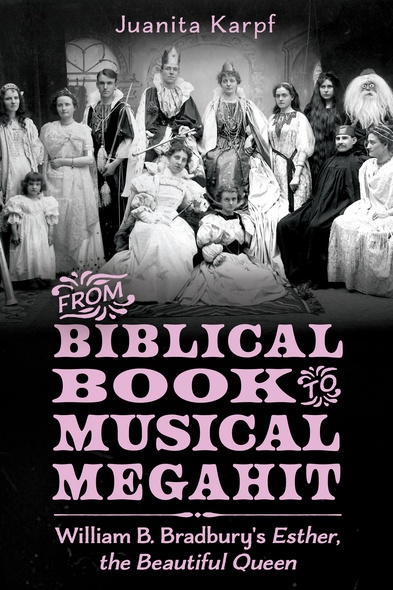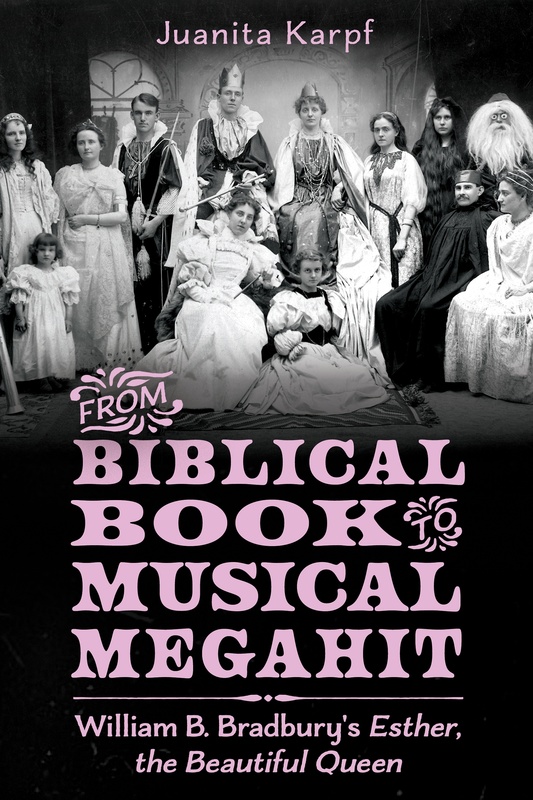
From Biblical Book to Musical Megahit
William B. Bradbury's Esther, the Beautiful Queen
Many churchgoers will recognize the name William Bradbury, a nineteenth-century American composer of popular hymns still sung at Sunday services. Bradbury’s name may also bring to mind Esther, the Beautiful Queen, his choral setting of a text based on the biblical Book of Esther. The uncomplicated score became enormously popular almost immediately after its initial publication in 1856. In From Biblical Book to Musical Megahit: William B. Bradbury’s “Esther, the Beautiful Queen,” Juanita Karpf traces the work’s rich performance and reception history.
Bradbury emphatically stated that he intended Esther to be sung as an unadorned religious and educational piece. Yet many music directors exploited the potential for his score, producing elaborately staged events with costumes, scenery, and acting. Although directors retained Bradbury’s original music, they nonetheless facilitated Esther’s rapid entrée into the realm of music theater. This stylistic transformation ignited a firestorm of controversy. Some clergy and religiously pious citizens condemned theatrical representations of biblical texts as the epitome of debauchery, sacrilege, and sin. In contrast, more tolerant and open-minded theater enthusiasts welcomed the dramatic staging of Esther as wholesome entertainment and as evidence of a refreshingly enlightened approach to biblical interpretation.
However heated this debate seemed at times, it did little to quell the continued rise in popularity of Esther. In fact, by the late 1860s, Bradbury’s score had worked its way across the continent, north to Canada and, eventually, to Great Britain, Australia, Asia, and Africa. With performances recorded over a century after Bradbury published his score, Esther became, by any measure, an international megahit.
From Biblical Book to Musical Megahit is a gratifying exploration of a surprisingly important and durable work in nineteenth-century American musical life.
Clear and eminently readable, From Biblical Book to Musical Megahit is a veritable trove of information, photographs, and music.
Juanita Karpf is an independent scholar, former educator, and professional cellist. She is author of Performing Racial Uplift: E. Azalia Hackley and African American Activism in the Postbellum to Pre-Harlem Era, published by University Press of Mississippi. She has published in American Music, Black Music Research Journal, and Popular Music and Society.




